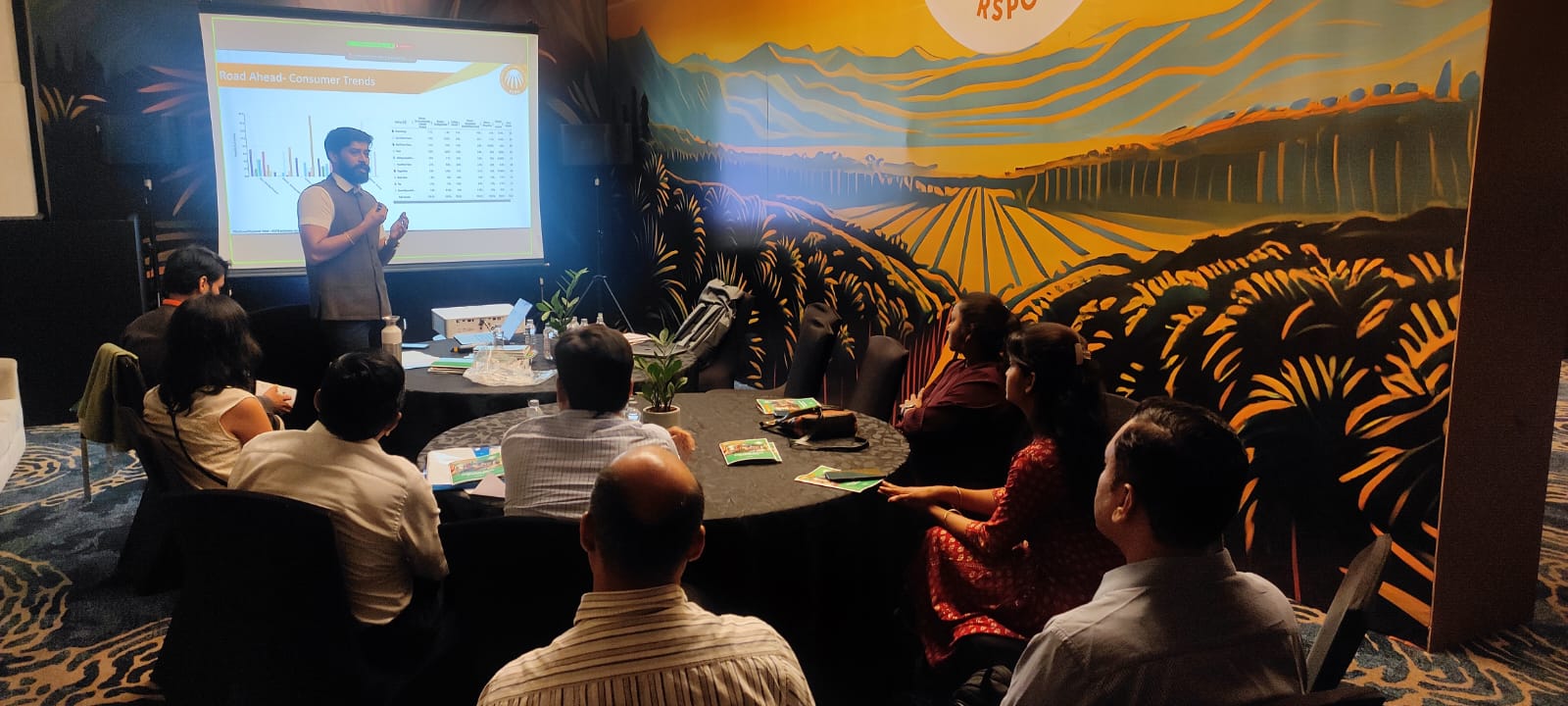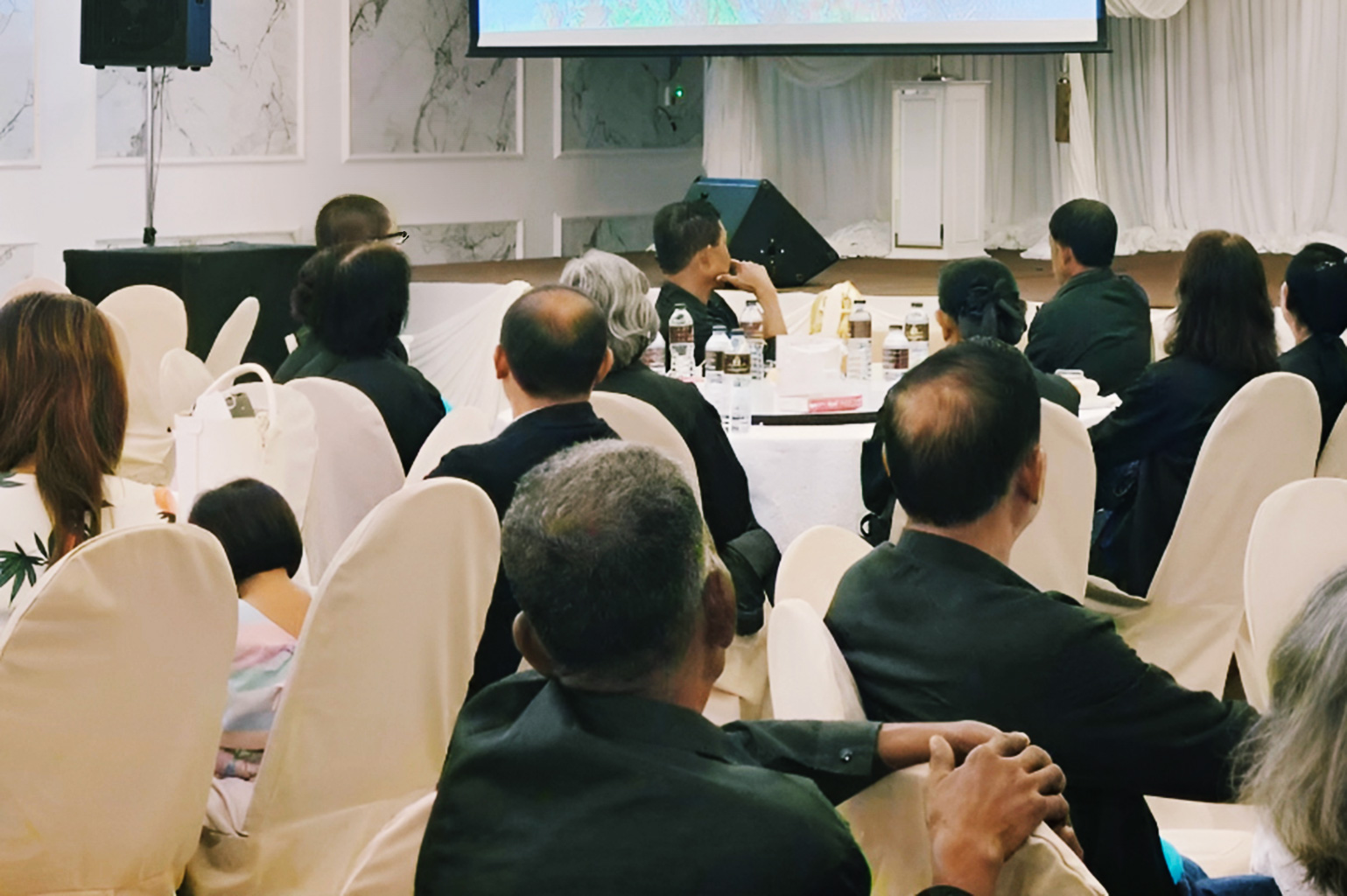RSPO Supply Chain Certification Standard Review 2025-2026
Certified oil palm products go through many production and logistical stages between oil palm plantations to end products. The RSPO Supply Chain Certification (SCC) Standard presents a general chain of custody requirements that shall apply to any organisation throughout the supply chain that takes legal ownership and physically handles RSPO Certified sustainable oil palm products.
The SCC Standard is presented as a series of auditable requirements, designed to demonstrate implemented systems for control of RSPO Certified oil palm products. It is a companion standard to the RSPO Principles and Criteria (P&C) and the RSPO Independent Smallholder (ISH) Standard, which ensures that palm oil that has been cultivated and produced as RSPO Certified by mills is then able to be traded, distributed, sourced, processed and claimed as RSPO Certified along the supply chain.
*Click titles in orange to jump to associated topics
Introduction | Aims and Objectives | Timeline | Task Force | Observers | Task Force Meetings | Governance Structure | Public Consultation | Secretariat Leads | Resources
Introduction
The RSPO Standards are reviewed at least once every five years for potential revision, in accordance with the ISEAL Alliance’s requirements as outlined in the ISEAL Code of Good Practice for Sustainability Systems (version 1.0, Clause 6.14). The current RSPO SCC 2020 was endorsed by the RSPO Board of Governors (BoG) in February 2020, and therefore a review is due.
RSPO formally initiated a review of the SCC Standard 2020, announced on 10 February 2025. Following this announcement and per the RSPO Standard Operating Procedure (SOP) for Standards Setting and Review 2020, a Task Force (TF) shall be established to oversee the review process. The expected timeline for the SCC Standard Review is 18 months, with expected endorsement by September 2026. Please see details of the expected timeline below.
Aims and Objectives
The main aims of the RSPO Supply Chain Certification Standard Review are:
- to assess, update and revise the RSPO SCC Standard 2020 document as determined by the review process; and
- to evaluate current and potential expectations, practices, or procedures related to supply chain certification within the palm oil industry for possible inclusion in a revised SCC Standard, with consideration of supporting implementation across palm oil supply chains.
The primary objective of the SCC Standard Review TF is to:
- assess the current RSPO chain of custody requirements as contained in the SCC Standard 2020;
- to determine whether revisions or additional requirements are needed to enhance clarity and/or relevance; and
- to ensure a revised SCC Standard remains auditable, implementable, relevant, and applicable across various sectors for at least the next five years
Timeline
The expected timeline for the SCC Standard Review is 18 months, with expected endorsement by September 2026. Please see details of the expected timeline below.


Task Force
The TF will comprise of up to 20 RSPO Members as substantive TF members, with balanced representation from the seven (7) Ordinary RSPO Membership sectors. Each substantive TF member may nominate an “alternate”, who shall participate only when the substantive member is absent from TF meetings.
The TF may also initiate the creation of a range of thematic Technical Committees (TCs) as necessary. Where a TC is created, the TF shall assign specific tasks to, and receive proposals from, the TC, and thereafter make consensus recommendations regarding the standard’s content and revision.


Observers
A number of Observers have been invited to following proceedings of the TF, with up to 10 seats allocated. Observers may consist of RSPO accredited Certification Bodies, RSPO Affiliate members, RSPO Supply Chain Associate members, or other voluntary sustainability schemes. Observers shall only contribute to discussions at the TF when asked or if given permission, and do not have voting or decision rights.
SCC Standard Review Task Force Meetings
| Meeting | Date(s) | Format | Location | Other Information |
| Kick-off | 29 April 2025 | Virtual | N/A |
|
| Meeting 1 | 22-23 May 2025 | Physical | Paris Marriott Charles de Gaulle Airport Hotel, Paris, France |
|
| Meeting 2 | 16-17 July 2025. | Virtual | N/A |
|
| Meeting 3 | 24-26 September 2025 | Virtual | N/A |
|
| Meeting 4 | 6-8 November 2025 | Physical | RSPO Kuala Lumpur Office, Bangsar, Kuala Lumpur |
|
| Meeting 5 | March 2026 (TBC) | Virtual | TBC |
|
Governance Structure
The SCC Standard Review Task Force shall report to the RSPO Standard Standing Committee (SSC). The SSC will provide continuous oversight on the entire process, and will make decisions in the event that consensus cannot be achieved at the TF level. Should the Standard SC not be able to resolve the matter and also result in deadlock, they shall defer it to the BoG, who in turn, shall aim to resolve it by consensus.
![]()
SCC Standard Review Public Consultation
Initial Public Consultation
An initial public consultation survey for the RSPO SCC Standard 2020 was conducted from February 10 to March 9, 2025. The purpose of the survey was to gather feedback, suggestions, and comments from RSPO members and stakeholders to support and inform the SCC Standard Review Task Force. You can find the official announcement here.
The responses received from the initial public consultation survey, including an analysis of the responses, will be published for transparency and inclusive stakeholder engagement. This section will be updated with the published responses.
Public Consultation
A 60-day public consultation of the draft revised RSPO Supply Chain Certification Standard is expected to take place from January to February 2026. This public consultation shall include physical and virtual modes of engagement. This section will be updated with further details and information once confirmed.
RSPO Secretariat Leads
Resources
Learn more about the SCC Standard Review:
The review process will be guided by the RSPO Standard Operating Procedure for Standard Setting and Review (2020), in line with ISEAL Alliance’s requirements and the ISEAL Code of Good Practices for Sustainability Systems Version 1.0.
For more details, please refer to the following documents: